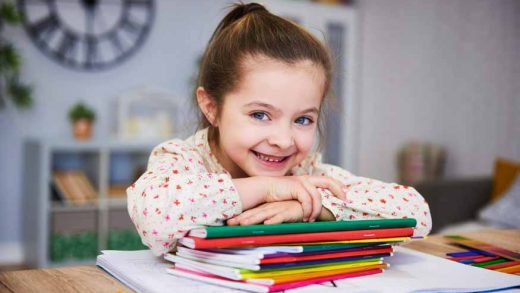Choosing the best preschool for your child can seem quite difficult, but it is an important task. A good education is the foundation of a successful life. It can make or break a child’s learning and knowledge.
But when it comes to the question of “how to choose the best preschool for your child,” there is no one-size-fits-all answer. This is because every parent has different concerns, and each of them wants to choose the best preschool for their child based on their choices and priorities.
Some would like a nearby preschool, while others would prefer a certain brand of preschool. Some may want specific facilities, while others may want a preschool with an open playground. So, every parent has their preferences when looking for the best preschool for their child.
What is a Preschool?
Preschool is an educational institution or school. It provides pre-primary education for young children before primary education. It is either government or private.
Preschool refers to an early care and education option available to parents of young children before the child enters full-time school. It usually has children between the ages of 1.5 and 5.5 years. Preschool is the first place where a child is away from their loved ones for the first time in a long time.
How to Choose the Best Preschool for Your Child?
A good preschool helps young children develop skills that will help them throughout their lives. It should help them receive, express, decide and understand different emotions and process emotions.
If your child attends a good preschool, it will encourage him to understand other people’s feelings. There are many ways to teach these concepts to young children in preschool. Sometimes, they use stories and various role plays as tools for their teaching and learning.
Learn ten important tips to help you choose the best preschool for your child.
- Get to know the teachers
- Keeping your child safe
- A happy, positive and spacious place and environment
- Communicate with the school
- Check the behaviour of the teachers with the child
- Look at the order of classes and other group sizes
- School curriculum
- Research classmates.
- Overview of your child’s choices
- The ratio of students to children
Whenever you choose the best preschool, always communicate with the school’s teachers first. At school, your child spends as much time as possible with his teachers, so understanding him and his needs is very important.
If the preschool teachers you choose for your child are able to take good care of them and teach them well, it will greatly benefit their overall success and growth.
Make sure the school has adequate safety measures in place before your child completes preschool. Check the school’s emergency plans to see if they have a proper medical facility or if they don’t have fire extinguishers.
Young children need to be in a happy and positive environment for their minds to develop and grow. Check that the classroom your child is in is spacious and airy enough. It may not be very big, but it should be enough for all children to move freely.
See the regular source of communication that the school has with parents of students, whether they communicate through circulars, emails, telephone or regular parent-teacher meetings.
There is no right or wrong way to communicate like this, but as a parent, you have to see what works best for you, depending on your availability.
As a parent, you must ensure that there are correct behaviour guidelines for preschool children and teachers. All teachers need to understand that because these children are too young, they need to have appropriate behaviour policies and consequences.
Also, remember to ask how teachers interact with their students and teach them how to behave, solve problems and make friends with their peers.
Before you choose the best preschool for your child, familiarise yourself with the school’s schedule. See how they teach the children in the class and what games they play while they teach, such as blocks, dolls, sandcastles, toys, etc.
Also, pay attention to how the class is divided, for example, into groups or pairs, or if there is any other theory about the child sitting in a circle or any other model. This will give you an idea of the creativity of the teachers and the teaching methodology they use.
Parents should check what goals the school sets for young children, whether we teach them through books or play. Preschool children are usually unable to sit still, so they must be taught a constant active-reactive approach.
In the school curriculum, whatever subjects are taught, such as music, art, craft, language, science, etc., they should focus on giving the child a formative progression. To do this, parents must analyse and check the school’s curricula in detail.
Analyse what kind of friends you want for your preschool kid. Friends made at an early age have a strong influence on a child’s psyche.
When you go to preschool, take your child with you and ask his opinion about which school he liked best and why. In this way, the child learns that his opinion is also valuable. You can also get information about the child’s desire to attend a certain school and why.
Another important factor to consider when choosing the preschool for your preschool kid is to find out the ratio of students to children in each class. This will give you an idea of how many students are in the class and whether the child can give your child enough attention or not.
All these factors play a crucial role in helping a parent choose the best preschool for their child. He must consider all these factors and only then decide which school is best for his child.
Being in the best preschool prepares children for the world of education and knowledge. But finding the best preschool for your child, like Kangaroo Kids International School, requires a lot of time and research.
Children attending a good preschool can improve their reading skills, vocabulary and basic numeracy skills. Such preschool children are more confident and better prepared for situations when they enter regular school.








